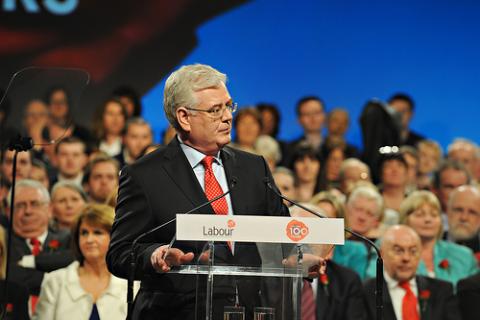Does class still matter to the Labour Party?

Sociologist Ulrich Beck has made the claim that class is dead, and in his work preferred to concentrate on the choices made by individuals. In the Irish Times on Saturday 2 June Brian Hayes of Fine Gael made similar claims in relation to class. With regard to the vote on the Fiscal Treaty, the paper quotes Hayes as saying, “I think every vote is about self interest”. He also claimed that the class divide in Irish politics is “over-egged”.
Brian Hayes’s analysis – like Beck’s - lacks empirical evidence to support it. With this in mind, Hayes runs the risk of experiencing the backlash of a very vocal and hostile working class – one that is alive and well. This is a working class whose number is increasing as a result of the downward social mobility of a middle class that is being squeezed by the austerity measures imposed on the country by a government so extremely neoliberal it would make Margaret Thatcher blush.
Each one of the austerity measures that the Government introduces has the capacity to create yet another protest group; adding to the current list of groups that are opposing austerity measures such as household charges, septic tank charges, third level education fees, water charges, hospital closures and more. Of late these groups appear to be taking a lead role in Irish civil society.
Whatever the risks being run by a Fine Gael politician who may still expect to be re-elected by this shrinking middle class section of the electorate, the Labour Party has no such cushion. At present the Labour Party is supporting and implementing austerity measures the outcome of which disproportionately affect the poorest in society; at the same time it depends on these very people for their support.
One option for Labour may be for the party to bury its head in the sand and follow Brian Hayes in his analysis of class in Irish politics being over-egged. Before doing this, I suggest the party look a bit more closely at some of the results in Dublin’s socially disadvantaged areas. Here we see the No vote was as high as 85% to 90% - as reported in the Irish Times on 2 June. The other option, then, is for the Labour Party to reconnect with the working class and, just as importantly, with a reinvigorated civil society whose opinions are no longer being formed by the Government through social partnership.
As austerity bites ever deeper we are seeing as a result an ever-growing working class that is alive and well. In conjunction with this we see emerging a healthier and more independent civil society that is no longer dominated by a neoliberal paymaster insistent on a non-adversarial type of social partnership.
We can only hope that a new hegemony will emerge, one based on fairness and equality and that will inform an ever-growing working class and a newly emerging civil society; replacing a neoliberal ideology that puts the market ahead of people. {jathumbnailoff}
Image top: The Labour Party.
